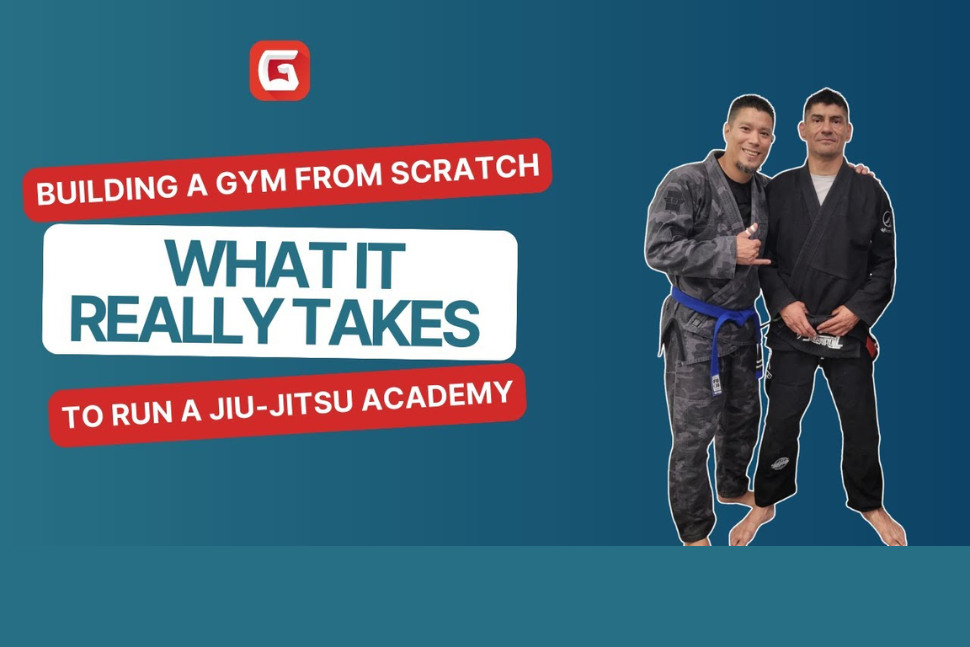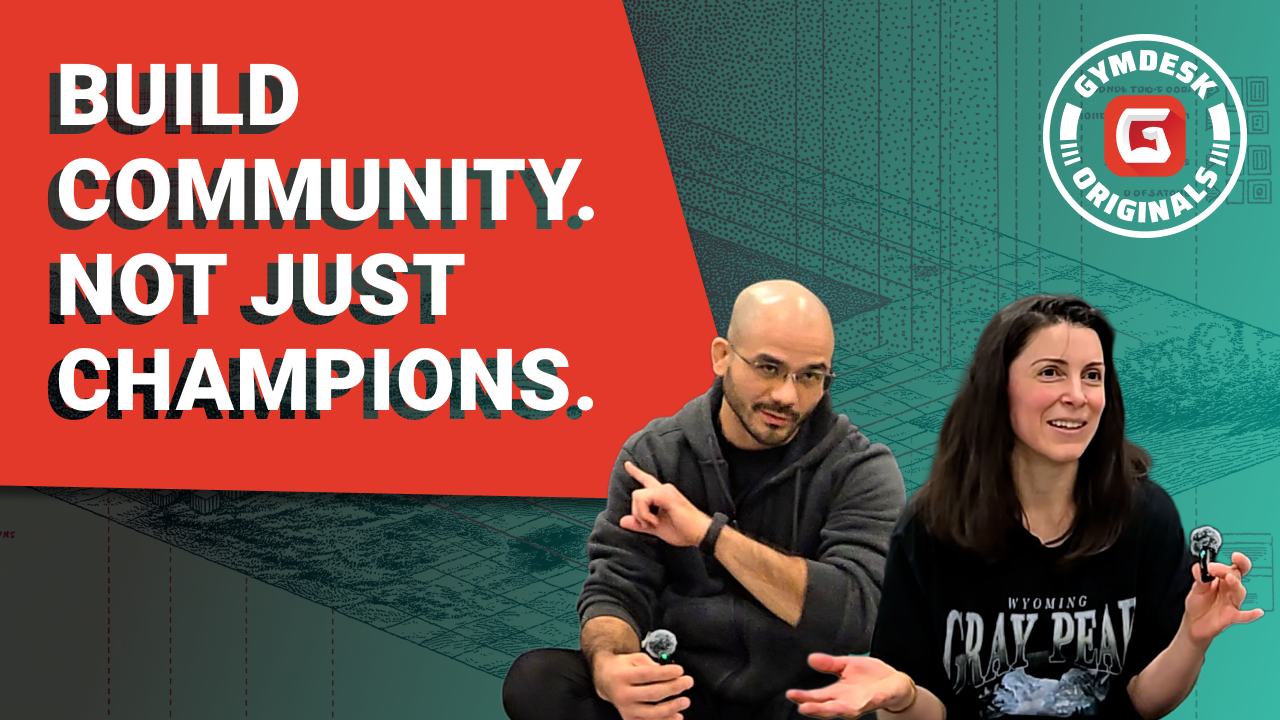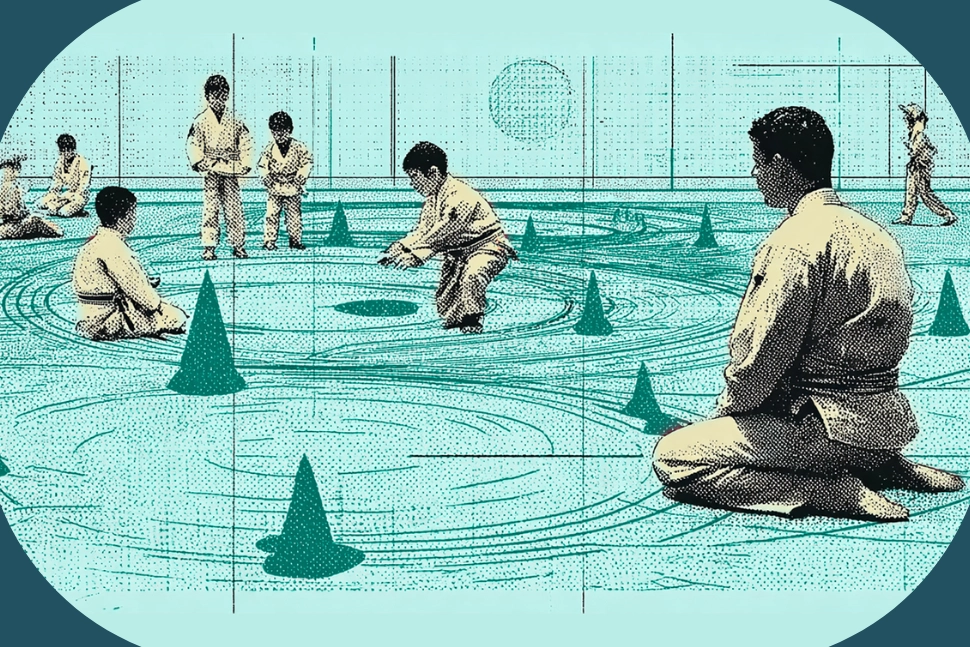Student to Martial Arts School Owner: Building Roll Society Jiu Jitsu in Las Vegas

Joey's path to becoming a martial arts school owner wasn’t mapped out early in his life. In fact, martial arts was one of several chapters in his personal journey. Raised in Long Beach, California, Joey’s first real step away from home was serving in the Army:
“As soon as I graduated high school, I left the military when I was 18...From 18 to 24, when I was in the military.”
Life after the Army led him to a long career with the U.S. Marshals. This experience required tenacity and resilience, skills that would later prove invaluable as a gym owner.
While his career was full, martial arts was mostly in the background—a hobby rather than a profession.
He trained in Hapkido for over a decade, achieving a second-degree black belt, but after moving to Las Vegas, he "did hapkido for about 12 years, second degree black belt in hapkido. But I had a 20 year hiatus. So when I moved here in '08 in Las Vegas, there was no place. The couple places that were closed down, so I was kind of limbo."
There was passion, but no clear outlet.
Discovering Jiu Jitsu and the First Step into Business
Joey’s true introduction to Brazilian Jiu Jitsu (BJJ) was almost accidental—a consequence of finally taking the plunge after years of hesitation: “I always wanted to do jiu jitsu and try it, but you know, just people on top of you sweating. I just, I just, yeah, I just hadn’t...When I finally got the nerve to try it, Covid happened and every place shut down. So I had to wait until afterwards.”
When the world reopened, Joey found a Gracie Barra academy just minutes from his house. After only three days, he was hooked:
“I loved it. I just, I felt so helpless....A kid just was taking advantage of me. I was like, dude, I gotta learn this.”
Although his friend quit after only two classes, Joey persisted—something that soon led to a surprising new opportunity.
How to Build a School: Partnerships, Setbacks, and Finding the Right Fit
Joey hadn’t originally planned to open a school:
“Well, first off, I never really thought about opening a school or getting in business, you know, as far as opening a jiu jitsu school, it was kind of a leisure thing, you know, oh, I want to learn. I want to, you know, I want to train, and I want to see how far I can go with that.”
The invitation came from a fellow practitioner who wanted to start a school and was looking for a partner. Joey had the resources, and the venture into ownership began.
The initial partnership was promising, but real life intervened. His partner, originally from Brazil, struggled with personal issues and ultimately had to leave:
“It was like one of those things I think I was kind of planning for because, you know, you can see the signs...He ended up going back to Brazil, and I had to solicit somebody else that was interested because I had. I had the business here. I had everything already, you know, set up, and I just needed to find somebody that was going to be the face.”
The sudden transition was a significant test of Joey’s resolve, a moment when many would have quit. “Most people would be like, okay, the face of the business is kind of gone. What am I going to do?”
But Joey’s experience prepared him for such adversity.
The Perfect Partnership and a Growing Community
Enter Santos, a passionate black belt teacher who had been instructing friends and family in his garage.
Their partnership was serendipitous in its symmetry: “Joey had the school here needed an instructor. Said, hey, I heard you’re an instructor without a school, on a school without an instructor. Maybe we can get together and help each other out.”
This meeting marked a new beginning for Roll Society.
Santos brought not only technical expertise but a contagious love for teaching: “I found my passion in sharing knowledge, so that’s why I started teaching at home in the garage. When I got my black belt, the biggest joy I had was sharing with people the love of the art I was taught from my original professors, a true love of the art of Jiu jitsu. And if I can instill that in my students and I see them love it, then watch their journeys grow. That's what I love.”
With Santos as the head instructor and Joey managing the business side, the academy embraced a true partnership model:
“He runs the mats. He’s the black belt. He loves teaching, and he loves doing everything outside of it. On the other end, I do the managerial stuff...So we bring those two sides together, and it just works out so we have a good understanding.”
Vision, Values, and the Never-Ending Journey
As the school continues to evolve, Joey and Santos remain keenly aware that growth is about more than numbers: it’s about building a community and passing on the lessons of jiu jitsu for all ages and backgrounds.
Santos describes his teaching philosophy: “I have a model here.
Learn something new, have fun. Don’t get hurt. You can do those three things. You can come in here, learn something new, have fun, and go home and not get hurt. It’s a great day.”
When asked about the vision for Roll Society, Santos’s answer is simple, profound—and at the heart of every martial arts school that truly thrives:
“If I can share that love that my professors gave me of jiu jitsu, and I can share that love with my students and have them fall in love with the sport, with the martial art, and they’re going to go share it with their kids, and they’re going to share it with their family, and they’re going to share with their friends. And that’s the beauty of how we all grow together.”
Conclusion
The journey of Roll Society Jiu Jitsu is marked by persistence, adaptability, and, above all, a passion for sharing martial arts. Setbacks and the unexpected are simply part of the path for Joey and his team.
As Joey himself says, “You learn from your mistakes or you learn from past ventures and you just move on from there and you don’t make the same mistakes again.”
For Roll Society, every challenge has been an invitation: to grow, to learn, and to help others find the same meaning and community in martial arts that has changed Joey’s life.
Gym management software that frees up your time and helps you grow.
Simplified billing, enrollment, student management, and marketing features that help you grow your gym or martial arts school.





